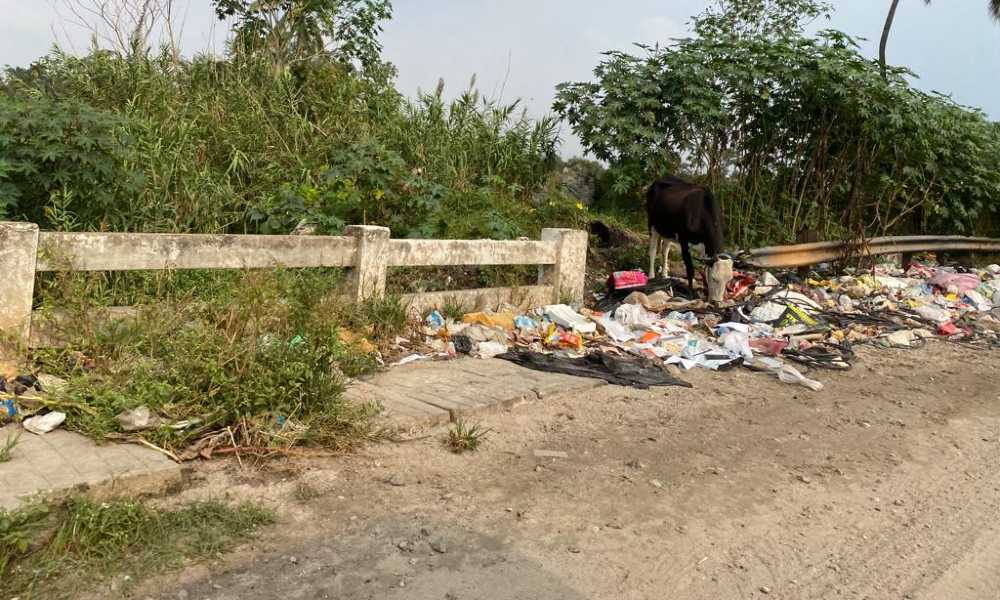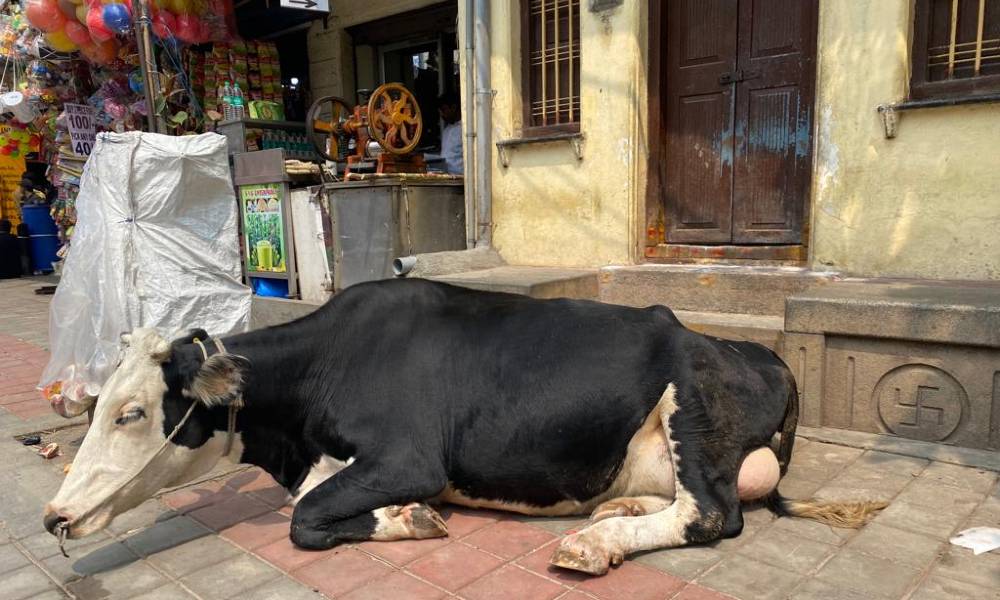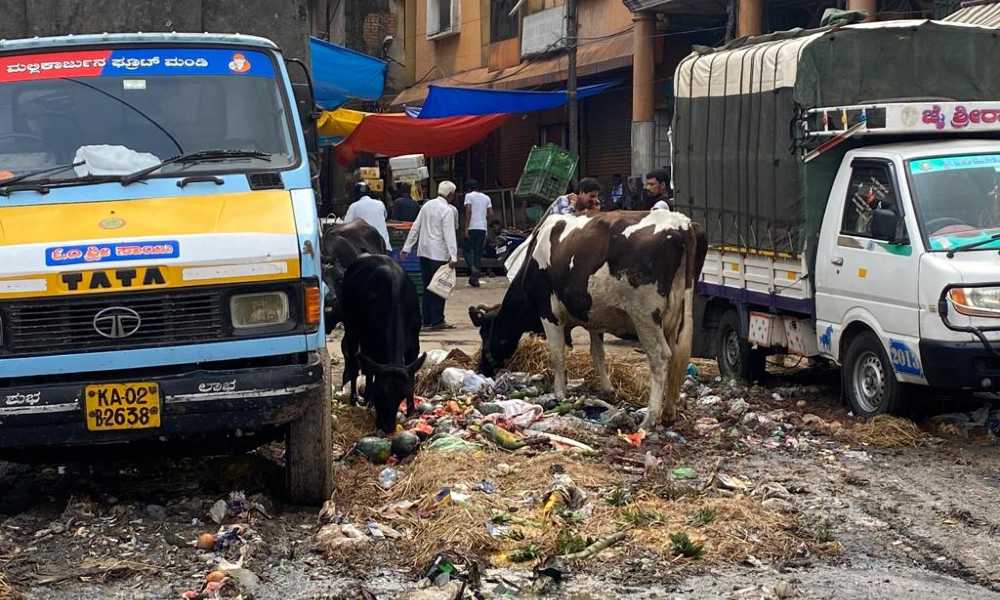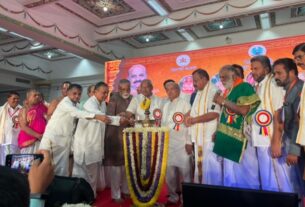Due to the non-segregation of waste in the city, cows suffer illnesses by consuming plastic.
Government veterinary hospitals in Bengaluru are seeing an increase in cows who are ill due to plastic consumption as they feed on waste. Veterinarians said.
Harish, senior inspector from Byatarayanapura, Gavipura government veterinary hospital said that there is no data for the number of cow deaths due to plastic consumption, but a rough estimate shows that the city reports 300 to 400 cows affected by consuming plastic. The number increases every year, he said.

A professor and doctor working in a veterinary college in Hebbal said, “Everyday I see stray cows searching for food in heaps of garbage. These cows later develop illnesses such as indigestion, absorption of fatty acids, pregnancy complications, and infections.” Adding to this he said that if these cows are not treated on time it can lead to cows dying at a higher rate.
Dr. Lakshmikanth, a doctor from the city veterinary hospital in Chamrajpet said, “We provide treatment for fever and injections if the cow is suffering from severe illness. If they require surgery or X-ray examinations, then we shift them to the veterinary college in Hebbal because we don’t have the facilities.”
A volunteer working with Karuna animal shelter organization said, “The issue is about segregation of waste. At times there are broken pieces of glass and used razors that are ingested by the cow. It eventually causes severe damage to the digestive system of cows.”

Muthu, a Bruhat Bengaluru Mahanagara Palike (BBMP) official from the health department said, “Mixed waste is usually dumped without segregation. It makes the process of disposal of garbage difficult. Garbage collectors try their best to segregate materials that are harmful.”
BBMP guidelines state, solid waste management is done through stages of processing. The primary stage is segregation of waste. The recycling of waste happens only when the stages are followed in the required manner.
Krithika, a volunteer working with Saahas zero waste management said, “Wet waste including fruit peel, vegetable leftovers, etc should be compressed for biogas or can be dumped for the cows to eat without being put in a polythene bag. The plastic used is recyclable and as a responsible individual, we should look out if it goes for recycling or not.”




